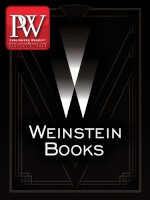Aided by one of the biggest bull rallies in years, the core Publishers Weekly Stock Index soared 51.2% in 2013, almost double that of the gain posted by the entire Dow Jones Industrial Average. Of the 13 stocks on the core PWSI (companies that have been listed for the full year), stock prices fell for four companies—all three retailers plus Educational Development Corp.
In contrast to the poor stock performance of Barnes & Noble, Books-A-Million, and Hastings Entertainment, Amazon’s stock price increased by $147.92 and ended 2013 close to the $400-per-share level. Since the end of 2011, Amazon’s share price has jumped 129%, as the king of online retailing continued to defy critics in 2013 who worried about the company’s lack of meaningful earnings amid huge sales gains. Amazon’s earth-bound competitors, meanwhile, not only suffered from sluggish earnings in 2013 but also declines in topline growth. B&N, in particular, has investors worried over its future, as generally solid results in its bricks-and-mortar stores have been offset by deep losses and falling sales with the Nook. Hastings’s shares had enjoyed a good run-up in price in the first half of 2013, with its stock at $4.12 on June 30, but concerns over long-term profitability led to a steady decline in the second half of the year and its stock price finished 11.4 % off from the 2012 close.
Stock prices for publishers, or their parent media companies, all rose in 2013, as investors seemed to endorse the idea that even in a digital age, content remains key. The biggest gain turned in by a publisher/media company was the 72.8% increase by Simon & Schuster parent CBS. Pearson, which is now focused on educational publishing, following the merger of its Penguin Group division with Random House, had the smallest increase in 2013 among publishers at a still solid 14.6%.
Both printers on the PWSI had solid rebounds in their stock price in the year after posting declines in 2012. R.R. Donnelley, in fact, had the largest increase in its stock price of all core PWSI members.
The three newcomers to the PWSI had mixed results since their debut. Houghton Mifflin Harcourt’s stock price rose 41.3% since its November 14 IPO, as the company has shown signs of financial stability following its exit from prepackaged bankruptcy. News Corp, parent company of HarperCollins, had a 16.6% increase in its share price since the publishing assets of the “old” News Corp. were split off from the company’s entertainment operations, which are now known as 21st Century Fox. Chegg, which offers textbooks for rent and other online services to college students, saw its stock price fall 31.9% since its November 13 IPO; the company has yet to turn a profit and it continues to tinker with its business model.
Stock Watch, 2013
| Company | Dec. 30,2012 | Dec. 31,2013 | % Change |
|---|---|---|---|
| R.R. Donnelley | 8.99 | 20.28 | 125.5% |
| CBS | 36.85 | 63.74 | 72.8 |
| Courier Corp. | 10.66 | 18.09 | 69.7 |
| Amazon | 250.87 | 398.79 | 59.0 |
| Walt Disney Co. | 49.79 | 76.40 | 53.4 |
| Reed Elsevier | 42.04 | 60.05 | 42.8 |
| Houghton Mifflin Harcourt | 12.00* | 16.96 | 41.3 |
| John Wiley | 38.93 | 55.20 | 41.2 |
| News Corp | 15.29** | 17.83 | 16.6 |
| Scholastic | 29.56 | 34.01 | 15.0 |
| Pearson | 19.54 | 22.40 | 14.6 |
| Barnes & Noble | 15.09 | 14.95 | -1.0 |
| Hasting Ent. | 2.20 | 1.95 | -11.4 |
| Books-A-Million | 2.66 | 2.31 | -13.1 |
| Educational Dev. Corp. | 3.81 | 3.07 | -19.4 |
| Chegg | 12.50*** | 8.51 | -31.9 |
| PWSI | 510.00**** | 771.24**** | 51.2% |
| Dow Jones Average | 13,104.14 | 16,576.66 | 26.5 |
*Price from date of IPO on November 14.
**Price from time of split with former parent company on June 28.
***Price from date of IPO on November 13.
****Excludes News Corp., HMH, Chegg.
Source: publishers weekly



 Volume 261
Issue 01
01/06/2014
Volume 261
Issue 01
01/06/2014





